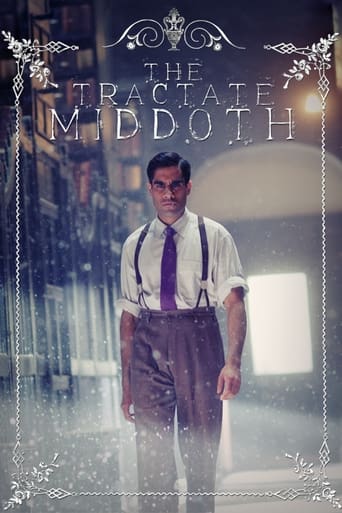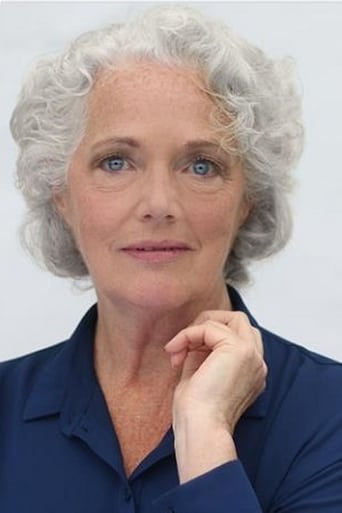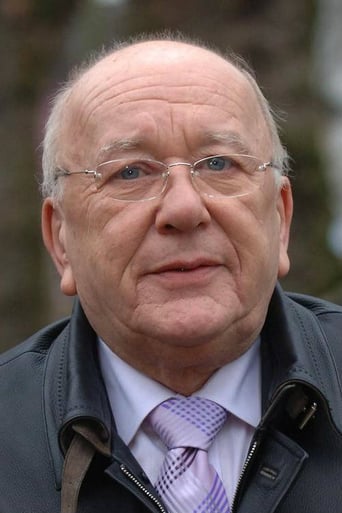The Tractate Middoth (2013)
The chilling story of Dr Rant, whose wicked streak continues from beyond the grave. Based on the festive ghost story by MR James. When a relative comes to find a particular book at the university library, young student Garrett is drawn into a family feud over a will and its legacy - with terrifying consequences.
Watch Trailer
Cast


Reviews
Strong and Moving!
For all the hype it got I was expecting a lot more!
The biggest problem with this movie is it’s a little better than you think it might be, which somehow makes it worse. As in, it takes itself a bit too seriously, which makes most of the movie feel kind of dull.
Worth seeing just to witness how winsome it is.
Although only one feature film ("Night of the Demon") has been based upon the ghost stories of M R James, a number of them have been adapted as short plays for British television, a format to which they are possibly more suited. During my childhood in the 1970s, I remember that the BBC regularly used to dramatise one every year under the title "A Ghost Story for Christmas", and this tradition has been revived in recent years. "The Tractate Middoth" is the latest offering in this series. The story opens in an unnamed university library. Mr Garrett, a young librarian, is asked by a man named John Eldred for an obscure Hebrew religious text. (In the original story Garrett has the Christian name William, but that is not used here). In some ways, this is as much a detective story as a ghost story. The detective element derives from a will made by an elderly and malicious eccentric, Dr Rant, who has ingeniously concealed it within the book in question. Eldred turns out to be the nephew of the testator and the inheritor of his estate. The ghost element derives from the fact that Rant, although long dead, still seems to take a protective interest in the old book. A frequent theme of James's work was the irruption into the rational, ordered world of his gentleman-scholars of dark, irrational forces, and this contrast between the seemingly rational and the uncanny is what gives them a lot of their force. "The Tractate Middoth" was first published in 1911, but was probably written earlier, and James probably envisaged the action taking place around 1895. Mark Gatiss, however, the writer and director of this version, has updated it to the 1950s, and I think that the change works quite well. The fifties, often seen as a brief interval of peace and stability between the turmoil of the war years and the social changes of the 1960s, were, like the late Victorian and Edwardian period, an era when it seemed, at least temporarily, that God was in his heaven and all was right with the world. Gatiss sticks quite closely to the plot of James's story. The main difference is that in the original the ghost only appears once, near the beginning. We are doubtless meant to infer that Eldred's death is due to the agency of Rant's ghost, as malevolent in death as he was in life, but James never makes this explicit. Here, Gatiss takes the opportunity to have the ghost reappear at this point, probably to make the tale more frightening. This film is not really in the class of the best James adaptations, such as Jonathan Miller's famous black-and-white version of "Whistle and I'll Come to You" (not part of the "A Ghost Story for Christmas" series), although the reason for this may be that "The Tractate Middoth" is perhaps not James's greatest story. The main problem is that it relies too heavily on an improbable coincidence; after his meeting with Eldred and his encounter with the ghost, Garrett goes to the seaside to recover- where the landlady of his boarding-house turns out to be none other than Eldred's cousin and the beneficiary of the missing will. Gatiss, however, handles his material well, telling quite a complicated tale in just over half an hour, and the ghost is suitably scary. This was enjoyable viewing for a Christmas evening. 6/10
From actor, writer and director Mark Gatiss is an adaptation of a short ghost story from M R James whose previous ghost stories used to be a staple at BBC adaptations in the 1970s around Christmas.Gatiss better known as a performer with The League of Gentlemen and as writer on Doctor Who and Sherlock is an aficionado on horror and Victorian literature.This is short simple, spooky tale. It has very little by way of tricks or fancy visual gimmicks. You have familiar British stalwarts from Roy Barraclough, Una Stubbs to John Castle with Sacha Dawan playing an earnest Librarian in 1950s set Oxbridge whose disposition gets rather nervous after a spectral encounter when looking for a book in Hebrew.Some might find the adaptation flat or uninspiring but it misses the point. Its a throwback to the old days when you had a plain ghost story told in a straightforward manner and still provides a few chills.
I always enjoy a good ghost story, but having only intermittently watched these intermittent BBC Christmas schedule fillers over the last four decades can't consider myself a genre expert. And this one is also based on one of M. R. James' lesser short stories that I've not read. My reading of horror short stories peaked with H. G. Wells' The Cone and my appreciation of horror films hasn't progressed beyond Night Of The Demon.Rather serious young male student helping out at university library is asked by a mysterious hopeful borrower for a copy of Hebrew book The Tractate Middoth – which apparently merely relates to the measurements of a temple – but is thwarted twice by uncanny events. The fabulous title might have been less impressive sounding if the book had been even more mundane, however it's what has been enclosed within the pages by a dying man and what it's worth that is the McGuffin. Suspend belief because! The uncanny events lead to the student's nervous breakdown, complemented by a breathtakingly outrageous plot contrivance and on the way to the (apparently faithful) trite but swift conclusion there's more unsettling spooky moments. This is my key experience of James: there always has to be a couple of unsettling spooky moments in his stories, and Mark Gatiss as writer/director gets this requirement over well. Acting and production were high quality; my cleverer daughter gave it a thumbs up although niggled by the updating of the setting to the 1950's. The programme was lean and slick and all I'd hoped, expected and desired, overall imho a good directorial debut by Gatiss who appears to be swarming all over the BBC at present. If only for the sake of continuing a good BBC Christmas tradition I can only hope it leads to many more James' from him!
During the Seventies the BBC made a habit of broadcasting A GHOST STORY FOR Christmas, mostly written by M. R. James and directed by Lawrence Gordon Clark. This continued a tradition established by James himself, who initiated precisely the same ritual during his lifetime as he read out a newly-created story each Christmas to his intimate circle of friends. Directed and adapted by Mark Gatiss, THE TRACTATE MIDDOTH revives that tradition; it concerns Garrett, a young librarian (Sacha Dhawan) who works at an Oxbridge college and is asked by elderly user John Eldred (John Castle) to locate a book, "The Tractate Middoth." This book appears to have been taken by a mysterious borrower who turns out to be a rotting ghost. Garrett encounters this specter and is thereby unwittingly drawn into a dark family story of resentment and revenge. Gatiss' adaptation updates the material to the Fifties, which enables him to create a thriller in the style of the MAN IN BLACK series (which Gatiss revived on radio) or the Edgar Lustgarten mysteries for Merton Park Studios. The adaptation establishes a sense of security through the presence of familiar elements - notably the Oxbridge locations, and the presence among the cast of stalwart character actors such as Roy Barraclough, David Ryall and Una Stubbs. As the action progresses, this sense of familiarity is gradually dismantled, culminating in a violent denouement. We are left in no doubt what will happen, but Gatiss stages it in an unexpected manner in the middle of a rural clearing on what looks like a fine late summer's day. The adaptation contains some notable cameos - for example Barraclough as a librarian insisting on absolute silence in his premises (even though there doesn't seem to be anyone there apart from Garrett and his friend George Earle (Nicholas Burns); and Castle's John Eldred, whose increasing anxiety is suggested by his breathless delivery.







